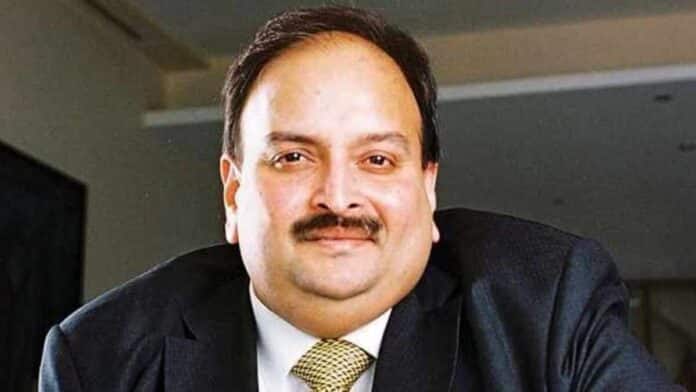The Delhi High Court has directed PNB scam accused Mehul Choksi to deposit Rs 2 lakh with it before proceeding further with his appeal challenging the dismissal of his plea to pre-screen the Bad Boy Billionaires’ docuseries on online video streaming platform Netflix.
The high court noted that Choksi is neither an Indian citizen nor a resident of India, and there are several proceedings pending against him in the country. It said if he does not succeed in his appeal, and any costs are imposed against him, there will not be a way to recover the amount.
A bench of Justices Vibhu Bakhru and Amit Mahajan directed him to deposit Rs 2 lakh with the high court registry to secure the cost of the proceedings.
“This court is of the view that, in the event, the appellant (Choksi) does not prevail in the present appeal and costs are awarded to the respondent (Union of India and Netflix), there perhaps would be no method of recovering the same.
“This court considers it apposite to direct, before these proceedings are taken, the appellant to deposit a sum of Rs 2 lakh within a period of one week from today with the registry of this court to secure the costs of the present proceeding,” the bench said in its order passed on July 24.
It listed the matter for further hearing on August 4.
The bench said in its order, “It is pointed out that the appellant is neither a citizen of India nor a resident of India. In addition, it is also submitted that there are several other proceedings pending against the appellant including for payment of dues which have not been discharged.”
The Centre was represented by standing counsel Ajay Digpaul and lawyers Kamal Digpaul and Swati Kwatra.
Choksi, who was represented by advocate Vijay Aggarwal, said in the appeal that he was only seeking the matter be remanded to the single judge who had dismissed the plea.
The single judge had on August 28, 2020 denied relief to Choksi, saying a writ petition for enforcement of a private right was not maintainable.
The high court had said his remedy lay in a civil suit and granted him the liberty to raise the issue therein.
The division bench had on September 7, 2020 sought responses of the Centre and Netflix on the appeal challenging the single judge’s order.
Choksi’s lawyer had earlier contended that there was a two minute footage about Choksi in the series which allegedly showed him in a bad light and therefore, could affect the various proceedings against him in India.
Netflix has opposed the plea, saying it was not maintainable as the high court has in the past held that over the top (OTT) or internet video streaming platforms cannot be regulated, and the only option was to file a civil suit.
Choksi, the promoter of Gitanjali Gems, and his nephew, Nirav Modi, are accused in the Rs 13,500-crore Punjab National Bank (PNB) fraud case.
Choksi left the country in 2019 and was granted the citizenship of Antigua and Barbuda.
The documentary, which was scheduled for release in India on September 2, 2020 was promoted by Netflix as: “This investigative docuseries explores the greed, fraud and corruption that built up – and ultimately brought down – India’s most infamous tycoons”.
The docuseries was released in October 2020.
Also Read
In the petition before the single judge, Choksi had claimed he has been falsely accused of various crimes in India and was under investigation or standing trial by and before various authorities and/or courts.
“The petitioner is entitled in terms of Indian law, that is, Article 21 of the Constitution of India to a presumption of innocence and a free and fair trial. Reputation being a facet of a person’s life, the petitioner is also entitled to a right to a reputation,” it had said.




